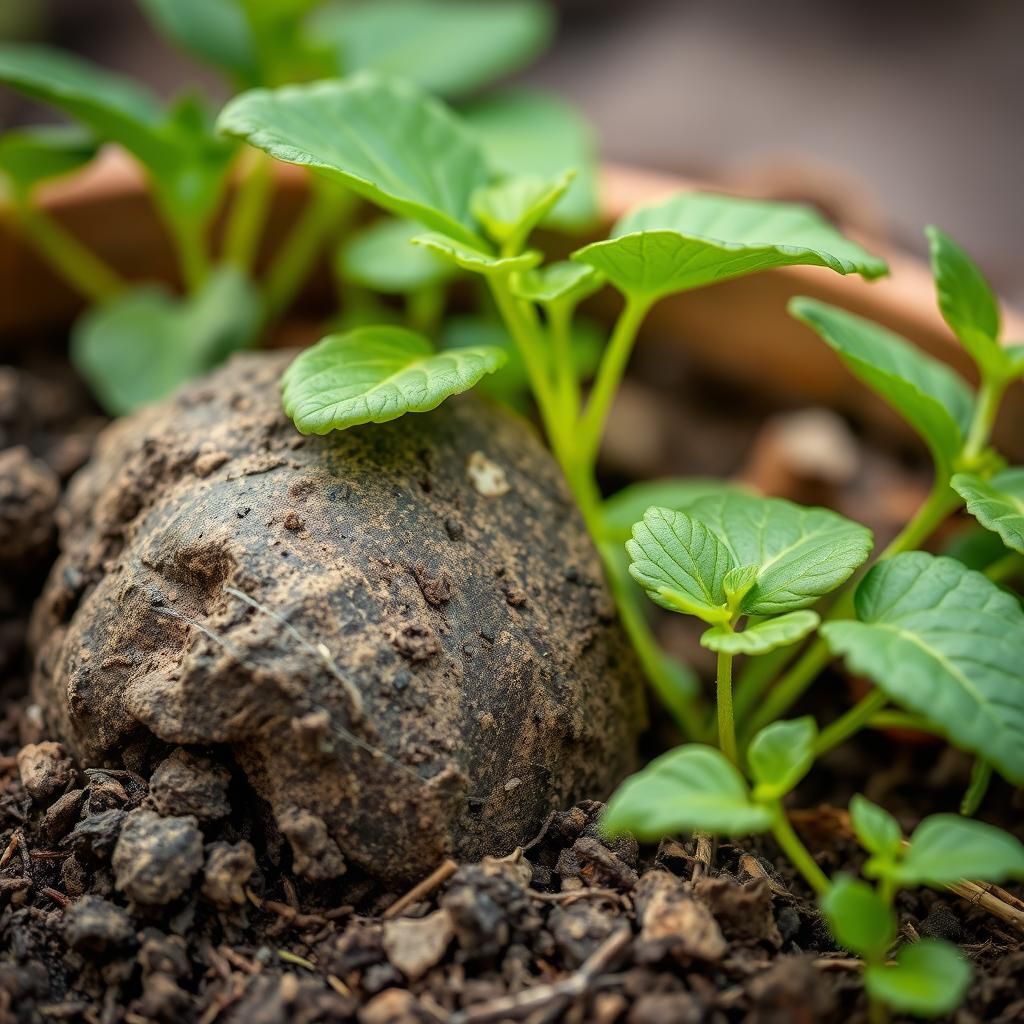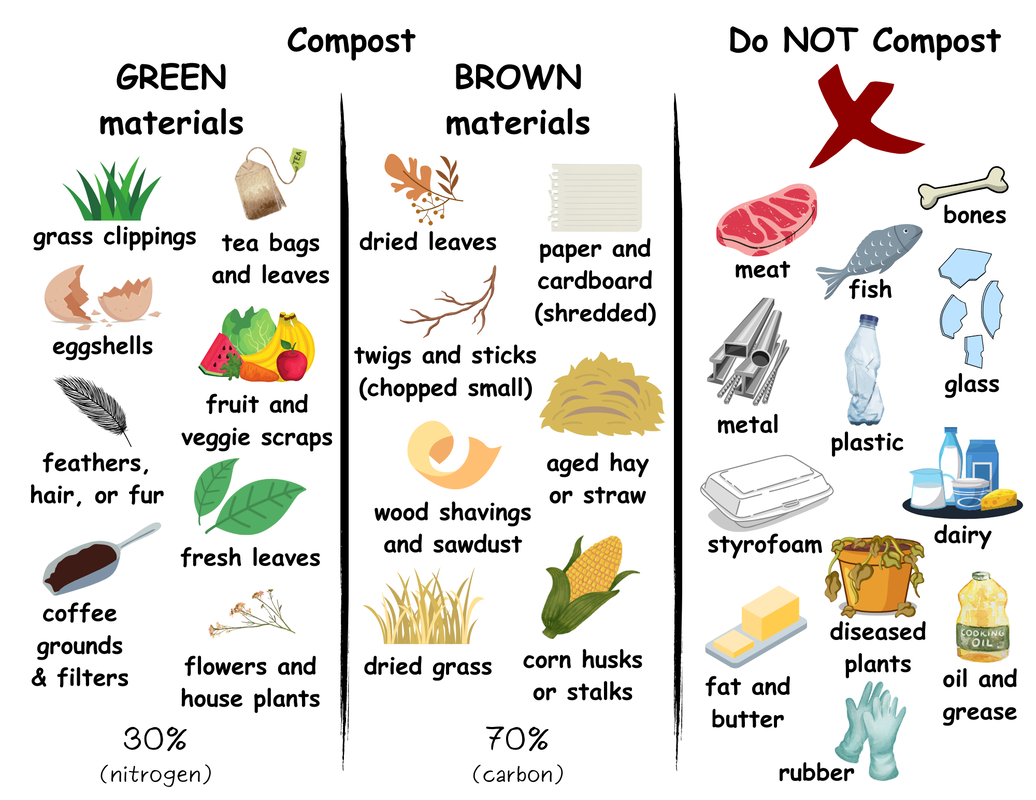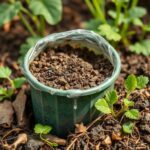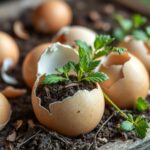What Plants Don't Like Compost? Discover the Best Gardening Tips to Avoid Compost Damage

Compost is often hailed as a gardener’s best friend, enriching the soil and promoting healthy plant growth. However, not all plants thrive with compost enrichment, and some can even suffer damage from its application. Understanding which plants dislike compost and why is essential for successful gardening. This article explores various plant species that are sensitive to compost, offering valuable insights and tips to help gardeners make informed decisions. By recognizing the potential pitfalls of compost usage, you can ensure a thriving garden ecosystem that nurtures your favorite plants while avoiding the common mistakes associated with compost application.
Which Plants Don't Prefer Compost?
Many gardeners wonder about the compatibility of certain plants with compost, as compost is a valuable resource for enriching soil and promoting healthy plant growth. However, some plants do not thrive when compost is used, particularly those that prefer nutrient-poor or very specific soil conditions. For instance, plants such as carnivorous species may thrive in low-nutrient environments, and their performance can be compromised by the rich organic matter present in compost. Similarly, some succulents and cacti can suffer from root rot if compost holds too much moisture. Therefore, understanding the specific needs of your plants is crucial to ensuring their health and vitality.
Carnivorous Plants
Carnivorous plants, such as Venus flytraps and pitcher plants, have evolved to thrive in nutrient-poor conditions. They derive nutrients from the insects they catch rather than the soil, making compost, which is typically rich in organic matter, unsuitable. Using compost can alter the soil structure and moisture levels, potentially leading to an environment that is detrimental to these unique plants.
Succulents and Cacti
Succulents and cacti are adapted to arid environments and can be significantly affected by rich compost. These plants require fast-draining soil to prevent overwatering and root rot, while compost tends to retain moisture due to its organic composition. Using a specialized soil mix with sand or perlite is usually recommended for these plants.
Alpine Plants
Alpine plants, which thrive in rocky and poor soil conditions, often do not fare well with compost. They require well-draining soil with minimal fertility, and the addition of compost can lead to overly rich soil that encourages the growth of weeds and other unwanted substances that can outcompete the alpine species.
Orchids
Orchids typically prefer an airy growing medium that provides excellent drainage. Common orchid medium often includes bark and sphagnum moss, while traditional compost may hold too much moisture and become compact over time. This can suffocate the roots and lead to fungal issues, which are detrimental to the health of orchids.
Native Plants
Many native plants are adapted to their specific ecosystems and may not benefit from the additional nutrients provided by compost. In fact, applying compost can disrupt their native soil balance, alter microbial communities, and encourage the growth of invading species. It's best to research local native plants and provide them with the right conditions they naturally thrive in.
| Plant Type | Reason |
|---|---|
| Carnivorous Plants | Thrive in nutrient-poor environments |
| Succulents | Require fast-draining soil |
| Alpine Plants | Prefer rocky, poor soil |
| Orchids | Need an airy growing medium |
| Native Plants | Best adapted to local soil conditions |
What plants are bad for compost?
:max_bytes(150000):strip_icc()/thingstonevercompost-e693cac2fe544c6b8a50489412d18205.png)
Not all plants are suitable for composting, as some can introduce pests, diseases, or undesirable compounds into your compost pile. Understanding which plants to avoid can help you create high-quality compost that is safe and beneficial for your garden. Below are several categories of plants that should be excluded from your compost.
1. Invasive Plant Species
Invasive species pose a significant risk to local ecosystems. When compost is used in gardens, seeds from invasive plants can germinate and spread uncontrollably. Some common invasive plants include:
- Knotweed
- Bamboo
- English Ivy
These plants can outcompete native flora, leading to a decrease in biodiversity and negatively impacting local wildlife.
2. Diseased Plants
Composting plants that exhibit signs of disease can lead to the spread of pathogens. Even if the composting process heats up, it may not reach a degree sufficient to kill all pathogens effectively. Potentially problematic plants include:
- Tomatoes with blight
- Potatoes with late blight
- Any plant infected by wilt
These diseases can survive the composting process and infect healthy plants once the compost is applied.
3. Weeds
Many weeds are better off not composted, especially those that have a high likelihood of spreading their seeds. Weeds such as:
See also:
- Dandelions
- Thistles
- Crabgrass
can thrive in compost and lead to more weed problems in your garden.
4. Plants Treated with Chemicals
Plants that have been treated with herbicides, pesticides, or other chemicals are risky to compost. Residues can affect the compost's nutrient balance and harm beneficial microorganisms. Plants in this category include:
- Lawns treated with herbicides
- Fruits and vegetables sprayed with chemicals
- Flowers treated with systemic insecticides
Chemical residues can persist in compost, potentially harming future crops and soil health.
5. High-Oil or High-Sugar Plants
Some plants contain high levels of oils or sugars, which can lead to problematic odors and attract pests during composting. These include:
- Citrus fruits
- Cooked food residues
- Herbs like sage and rosemary in large quantities
These materials can disrupt the composting balance, making it less effective and more difficult to manage.
What vegetables not to put in compost?

When creating a compost pile, it is essential to be mindful of the types of vegetables you include. Certain vegetables can introduce pests, diseases, or unfavorable odors, which can compromise the quality of your compost. Here are some vegetables that you should avoid putting in your compost:
1. Allium Family Vegetables
The allium family includes vegetables such as onions, garlic, and leeks. These vegetables contain compounds that can be harmful to beneficial microorganisms in the compost. Additionally, they emit strong odors that can deter composting organisms. Instead of composting them, consider using them as kitchen scraps in your kitchen waste disposal system.
- Onions
- Garlic
- Leeks
2. Starchy Vegetables
Starchy vegetables such as potatoes, sweet potatoes, and corn can cause issues in composting due to their high starch content. They tend to break down more slowly and can attract unwanted pests like rodents and other animals that are drawn to the starch and sugars present in these vegetables.
- Potatoes
- Sweet potatoes
- Corn
3. Cooked Vegetables
Cooked vegetables should be avoided in composting because they often contain fats, oils, and seasonings that are not compost-friendly. These additives can lead to foul odors and attract pests. Additionally, the cooking process can alter the vegetable's structure, making it less suitable for composting.
- Boiled vegetables
- Vegetable stir-fries
- Vegetables with sauces
4. Disease-ridden or Moldy Vegetables
Vegetables that show signs of disease, rot, or mold can contaminate your compost pile, introducing pathogens that can harm your garden plants. It’s essential to inspect your vegetables carefully, as adding diseased material can lead to more significant issues later on.
- Rotten tomatoes
- Moldy bell peppers
- Any diseased vegetable
5. Nightshade Vegetables
Nightshade vegetables, such as tomatoes, eggplants, and peppers, can sometimes carry toxins that are not conducive to a healthy compost pile. While some people may still compost these in moderation, it is safer to avoid them entirely to prevent potential complications in your compost.
- Tomatoes
- Eggplants
- Peppers
Which plants do not like manure?

Certain plants are sensitive to the high nutrient levels and specific compounds found in manure. Here are some key plants that do not like manure:
See also:
1. Root Vegetables: Plants like carrots, beets, and turnips can be adversely affected by manure. Excess nitrogen can lead to poor root development.
2. Brassicas: Brassica family plants, such as broccoli and cabbage, may suffer from fermentation effects caused by manure, which can disrupt growth and cause pest issues.
3. Certain Herbs: Herbs like basil and oregano do not thrive with too much nitrogen, making manure inappropriate for their growth.
4. Plants in Wet Soil: Those that prefer drier conditions, such as lavender and rosemary, can suffer from the added moisture and nutrient imbalance from manure.
5. Acid-Loving Plants: Some plants, such as blueberries and rhododendrons, prefer acidic soils and can be negatively affected by certain manures that may alter soil pH levels.
Root Vegetables and Manure
Root vegetables, including carrots, beets, and radishes, generally do not benefit from manure. The organic material can cause overly rich soil, leading to poor root formation. Here are some reasons:
- Excess Nitrogen: High nitrogen content in manure can lead to lush foliage at the expense of root growth.
- Distorted Shapes: Increased nutrients can cause roots to develop irregular shapes, impacting their marketability.
- Overwatering Issues: Manure can retain moisture, which can lead to rot in root vegetables.
Brassicas and Manure Sensitivity
Brassicas, which include plants like cabbage, cauliflower, and kale, are sensitive to high nitrogen levels typically found in manure. This sensitivity can lead to several issues:
- Overgrowth: Excess nutrients can cause rapid leaf growth but poor head formation, diminishing the quality of the crop.
- Pest Attraction: The lush environment created by manure may draw in pests such as aphids and caterpillars.
- Fungal Issues: High moisture levels associated with manure can increase the risk of fungal infections in these plants.
Herbs That Dislike Manure
Many herbs, particularly those like basil, thyme, and oregano, prefer leaner soils. Fertile, manure-rich soils can negatively impact their flavor and health due to:
- Strong Growth: Manure can foster excessive leaf growth, diluting essential oils that provide flavor.
- Disease Risks: The higher moisture content can lead to diseases such as root rot.
- Nutrient Imbalance: Over-fertilization can cause a nutrient lockout, hindering growth and flavor.
Plants Preferring Dry Conditions
Certain plants such as lavender, rosemary, and sage thrive in well-drained, dry soils and can be negatively affected by the added moisture and nutrients from manure:
- Root Rot: Excess water retention from manure can induce root rot in these drought-tolerant plants.
- Stunted Growth: Over-fertilized plants may become leggy and less robust, diverging from their natural growth form.
- Increased Susceptibility: High moisture can amplify the likelihood of fungal diseases and pests.
Acid-Loving Plants and Soil pH
Plants such as blueberries and certain types of azaleas or rhododendrons prefer acidic conditions and can be negatively impacted by the alkaline effects of certain manures:
- pH Imbalance: Manure may alter the soil’s acidity, making it unsuitable for these plants.
- Nutrient Shock: Sudden changes in soil composition due to manure can shock the plants.
- Poor Growth: Since these plants prefer consistent, stable soil conditions, their growth can suffer with erratic nutrient levels.
Questions from Our Readers
What types of plants should avoid compost?
Compost is beneficial for many plants, but those such as carnivorous plants, certain succulents, and some acid-loving plants like blueberries may not thrive in it due to their specific nutrient requirements or sensitivities to high nitrogen levels found in compost.
Can compost harm sensitive plants?
Yes, sensitive plants like ferns and some alpine plants can experience stress from compost, particularly if it is too rich or contains high salt concentrations, which can lead to root burn and overall decline in plant health.
What ingredients in compost should be avoided for certain plants?
Certain ingredients such as manure, large wood chips, or peat moss can negatively impact certain plants; for instance, manure may introduce pathogens, while wood chips might not break down fast enough to provide nutrients, harming plants sensitive to soil quality.
Are there any plants that thrive without compost?
Absolutely, plants like cacti, aloe vera, and native wildflowers often thrive in poor soil conditions and may not require compost, as they have adapted to extract the necessary nutrients from their natural environment without the added organic matter.
See also:

If you want to read more articles like What Plants Don't Like Compost? Discover the Best Gardening Tips to Avoid Compost Damage, we recommend you check out our Compost category.
Leave a Reply
Related Articles